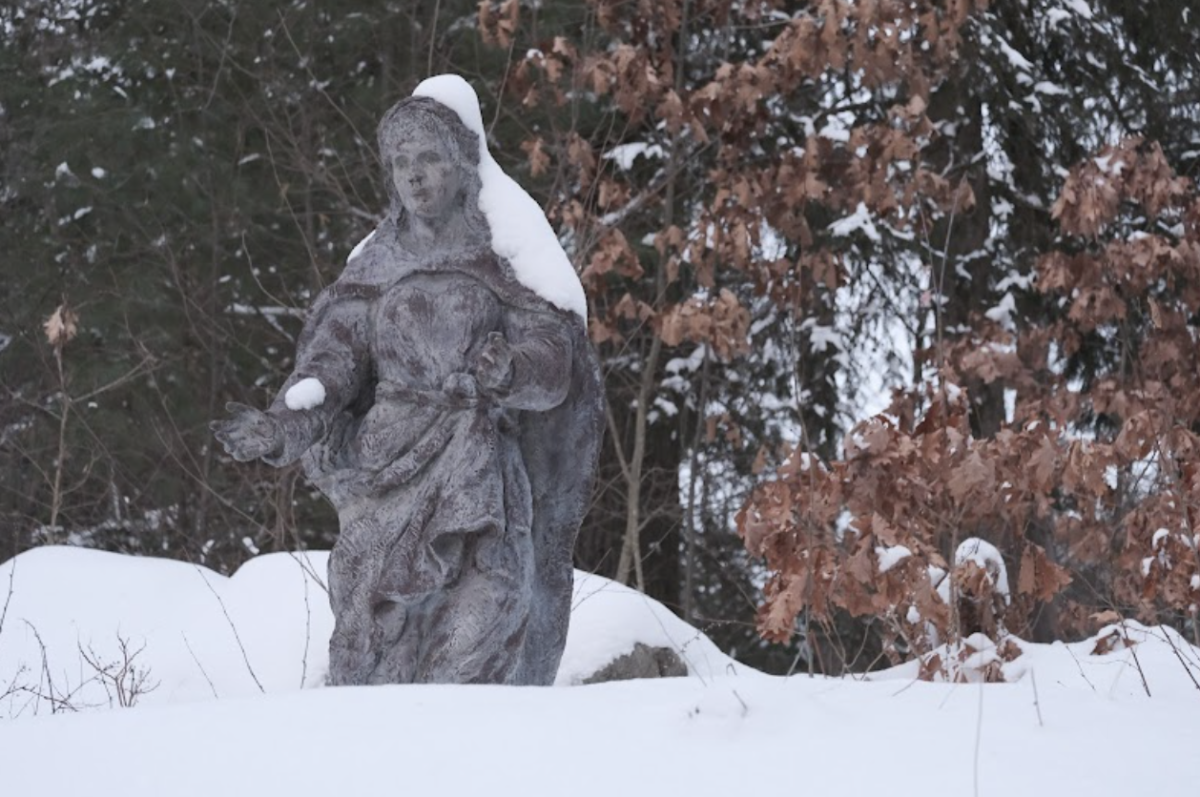On July 23, 1967, a group of Catholic university leaders across the United States released a statement called “The Nature of the Contemporary Catholic University”, colloquially known as the “Land O’Lakes Statement.” This document was largely drafted by University of Notre Dame President Theodore Hesburgh, C.S.C., as well as leaders from Fordham University, Boston College, Georgetown University, and other North American Catholic universities. This document sounded the death knell for truly Catholic education in this country, and its nebulous suggestions about how Catholicism should interact with the modern university still create problems today.
In the first paragraph of the ‘Land O’Lakes Statement,’ the writers state, “to perform its teaching and research functions effectively the Catholic university must have a true autonomy and academic freedom in the face of authority of whatever kind, lay or clerical, external to the academic community itself.”
In truth, no one is free from all authority, and those in Catholic education should understand that most fully. Individuals, possessing of free will, must use that free will for good and the glory of God. Similarly, in the Catholic university, those in the academic community must direct their research teleologically towards the objective truth of the Church. This does not mean that every teacher must be Catholic or that non-Catholics should be discriminated against, but that the community must still be bound by the Church’s authority and doctrine. By designating a school as Catholic, those who lead the school are claiming to represent a certain set of ideas, principles, and doctrines that must be followed. By promoting the university as Catholic, there are certain practices and beliefs that must be accepted or at least not dissented from publicly. A truly Catholic university must never put the authority of the Church asunder and must always seek the objective truth handed down through the Scriptures and the Apostolic tradition.
The vanguard of Catholicism at a Catholic university is theology. As a Catholic university, the school is claiming to represent a certain truth, which is contained in the Catholic theological tradition. Therefore, Theology must not only be protected as its own department but must influence and guide the work of all other departments at the university. It must illuminate the wisdom of the Catholic faith to prevent philosophers from promoting subjectivism, biologists social Darwinism, and Psychologists neo-Freudian sexual understandings. Thus, the Theology Department plays a specific role in the protection of Catholic education, and any attempt to lower the importance of this department should be fervently resisted.
However, those who drafted the ‘Land O’ Lakes Statement’ attempt to do just that, claiming in section four, “there must be no theological or philosophical imperialism; all scientific and disciplinary methods, and methodologies, must be given due honor and respect.” There is nothing wrong with other disciplines, such as the sciences or arithmetic, but they do not contain the fullness of truth and the entirety of the Catholic university. While the drafters of the statement do go on to explain that Theology will influence other departments, it does not give any pride of place to this department but rather views it as one among many that must participate in various interdisciplinary dialogues.
While this statement is explicitly for larger Catholic universities, and the secretary, Fr. Neil G. McCluskey, S.J., claimed that this statement does not take into account smaller Catholic liberal arts colleges, his words have been ignored. Since 1967, many smaller Catholic liberal arts colleges have also heeded the document and signed onto a vision of the Catholic university where the Church’s authority is traded for worldly prestige and government funding. Marymount College in Tarrytown, New York, is a prime example of this acceptance. In the 1980s, the president of the school, Sister Brigid Driscoll, explained how she strongly supported the ideals of “Land O’Lakes” and was working to implement them in her own school. Marrymount College was sold in 2008.
This statement is not alien to Saint Anselm College either. Today, this school is witnessing a concerted effort to remove importance from the liberal arts, especially the Theology and Philosophy departments, through revisions in the core curriculum and budget cuts. These attitudes and dismissal of these departments did not spawn out of a black hole but rather, have been the dominant strains of thought in Catholic higher education for almost sixty years.
I object. Theology ought to remain at the forefront of Saint Anselm College, so that all students might experience the truth and grandeur of the Catholic faith. Without th things that make us us, we will simply be another school among many and eventually, we will cease to exist as a college, as Marymount and many others.


